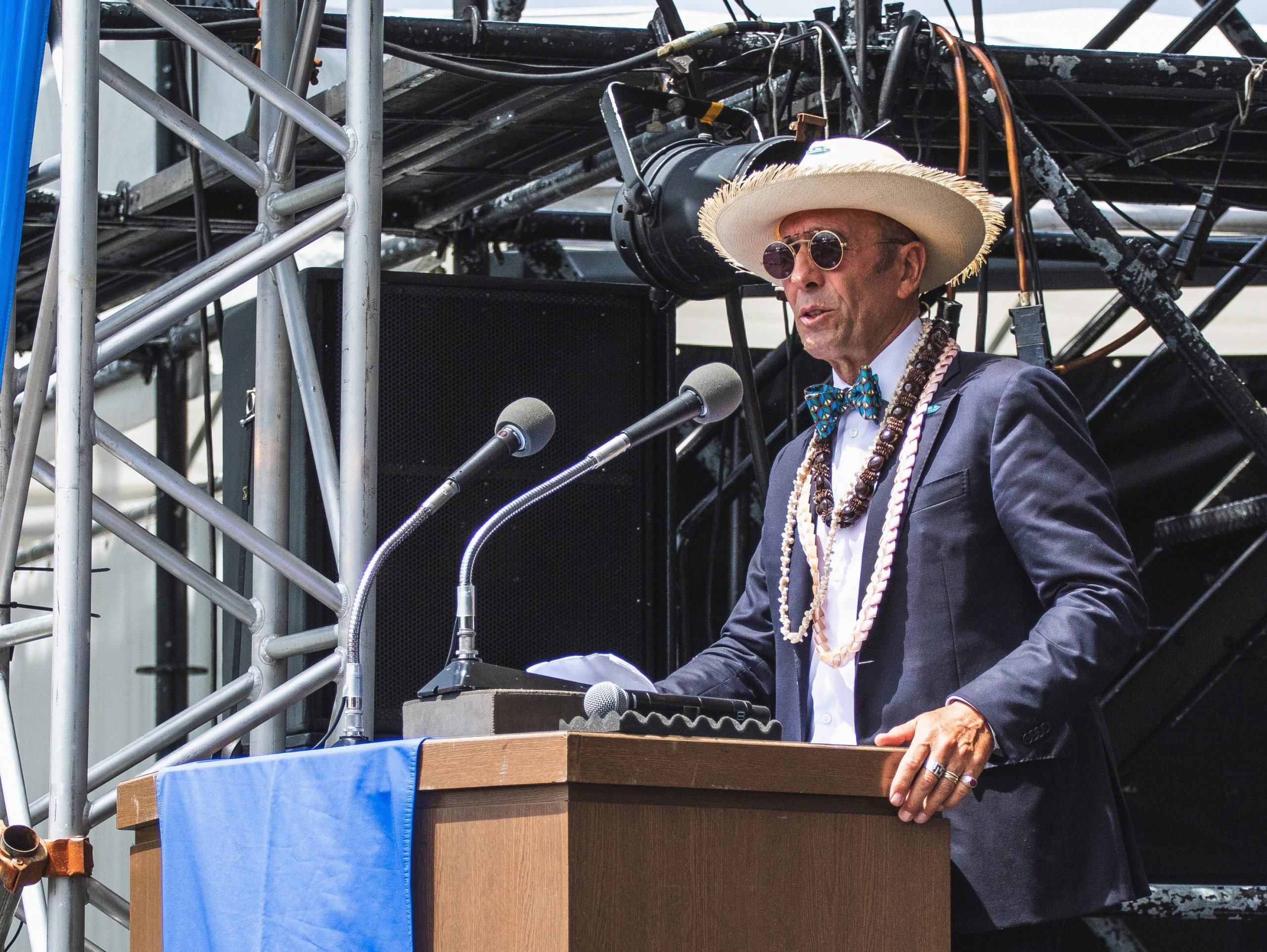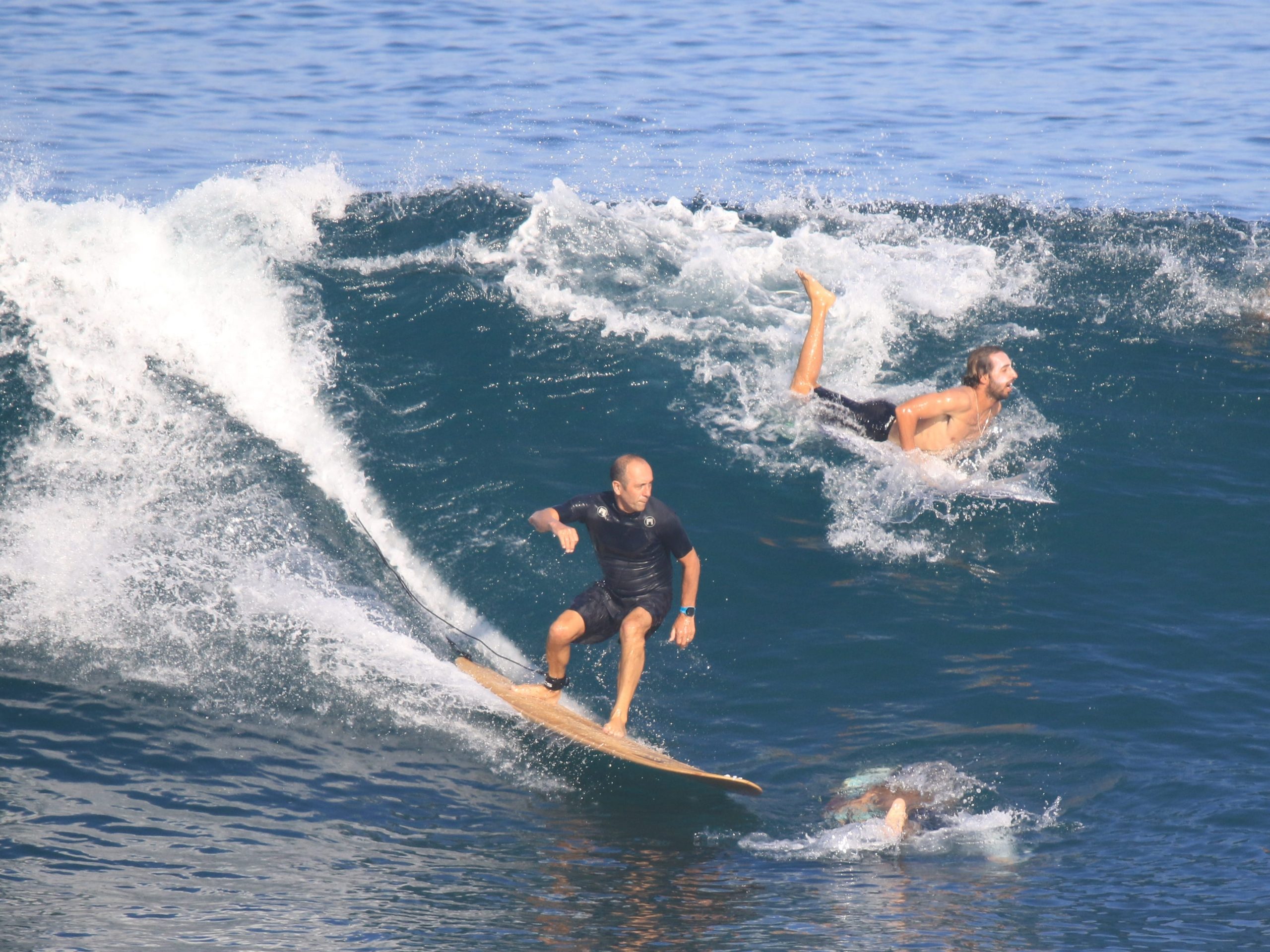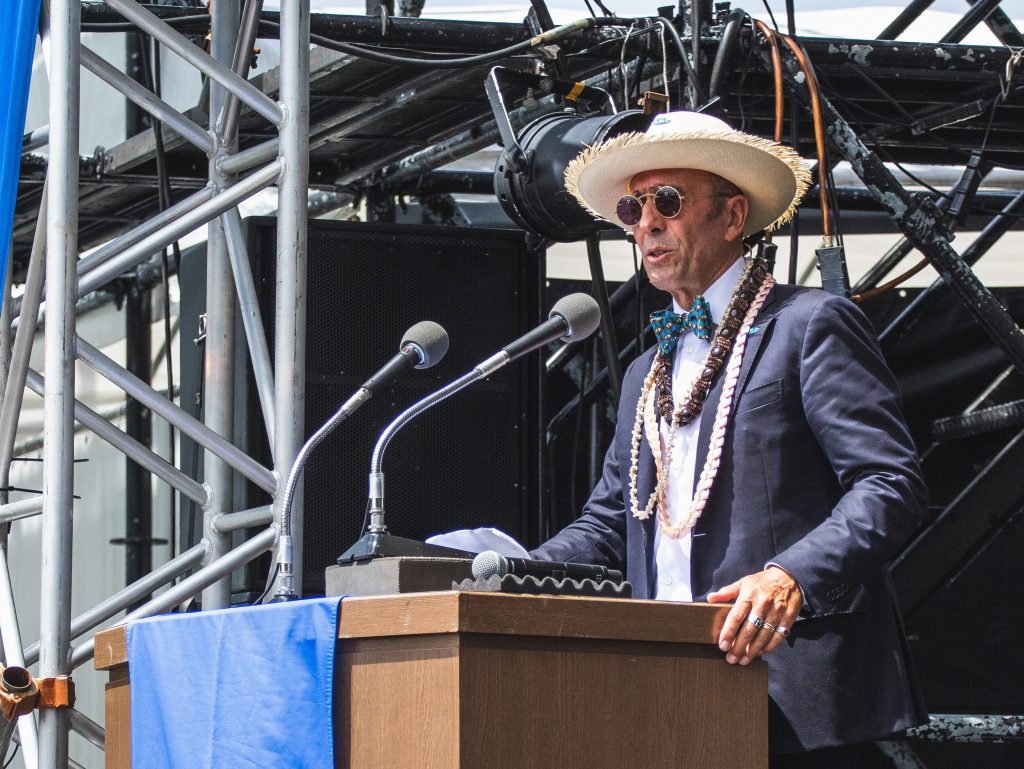
- Surfing will finally be featured as an Olympic sport for the first time at Tokyo this year.
- Fernando Aguerre spent the last 22 years lobbying to get surfing into the Olympics.
- Surfing was one of the few sports that grew in participation during the COVID-19 pandemic.
- Visit Insider's homepage for more stories.
When Fernando Aguerre, a lifelong surfer and president of the Internation Surfing Association (ISA), began his mission to get surfing into the Olympics in 1995, he assumed he'd accomplish it in time for the 2000 Sydney Olympics.
But it ultimately took more than two decades to get his sport onto the world stage this year for the Tokyo Olympics.
"We had such of a lack of understanding of what that the process itself would be," Aguerre told Insider. "If you're a Catholic and want to become a Saint, there's a process for that. But here, there was barely a process. The rules were very vague."
Aguerre had to overcome legislative and political hurdles to get surfing considered
New sports must go through several untimed steps to be inducted into the Olympics, according to the official Olympic Charter. First, they must be recognized as a sport by the International Olympic Committee (IOC), which Aguerre could do with the ISA in 1996.
But a sport needs to be widely practiced by men in at least 75 countries and on four continents and by women in no fewer than 40 countries and on three continents before it can be considered for an Olympics event, which surfing was not at the time. Additionally, previous rules required a current sport to be removed to make room for a new sport, which was the biggest challenge for Aguerre over the last two decades.
"None of the sports that were there were ready to get kicked out," Aguerre said. "It was like trying to get your elbow into the most popular bar in town at 11 p.m."

Even after spreading surfing to other countries, Aguerre's mission was just getting started.
The biggest challenge was a pair of IOC presidents that weren't welcoming of new sports.
Juan Antonio Samaranch, who served as IOC president from 1980-2001, and Jacques Rogge, who served as president from 2001-13, were against adding new events to the games. No new sports that weren't featured in previous Olympics were introduced during their combined 34-year tenure.
But a window opened for Aguerre and the ISA in 2013 with the election of current IOC president Thomas Bach.
Bach has been an ally for those trying to add new sports, including Aguerre. This year, four new sports will be played at the Olympics for the first time: surfing, skateboarding, karate, and climbing.
"He was elected in 2013, and a year later, he held a big congress, which is a meeting of IOC and stakeholders which happens every decade and a half," Aguerre said. "The first game where you could go through the process of adding new sports was for the 2024 games, but they changed the rules and said the host city, in this case, Tokyo, could have up to five years to ask for new sports to be included, and that opened the door wide open."
The COVID-19 pandemic put Aguerre's life's work in jeopardy but ended up helping the sport
In 2017, the IOC officially ruled that surfing would be a sport at the Tokyo Olympics, and Aguerre's mission appeared to be fulfilled. But when the COVID-19 pandemic put the entire 2020 Olympics on hold, including Aguerre's life work.
Not only were the Olympics on hold, but the qualifiers for every sport, including surfing, had to be put on hold as well.
Aguerre and the competing surfers used the extra year to their advantage.
"I said, 'okay, well it's postponed, postponed means it's not canceled,'" Aguerre said. "It was an extra year to fine-tune all the extra details that we couldn't fine-tune. So now we're fine-tuning."
Additionally, surfing's popularity grew in the US.
The number of surfers in the US grew from 3 million in 2019 to 3.8 million by the end of 2020, according to a consumer insight study from the Surf Industry Manufacturers Association (SIMA). It was the biggest single-year jump since SIMA began tracking participation.
Of the more than 120 sports monitored by the Sports and Fitness Industry Association (SFIA), surfing had the second-highest growth rate of any sport in the US last year.
"A lot of people were not going to work, so they had more time," Aguerre said. "You didn't have any other team sports. They didn't want people to get together ... if you think about a place where you're not going to get contagious or infected, it's the ocean. Nobody is closer than 20 feet in the water. We're all spread apart."
The combination of extra preparation time plus a slight surge in popularity in the US has given Aguerre and the ISA a lot to look forward to in Tokyo, as they get to watch 22 years of progress culminate on the world stage.
